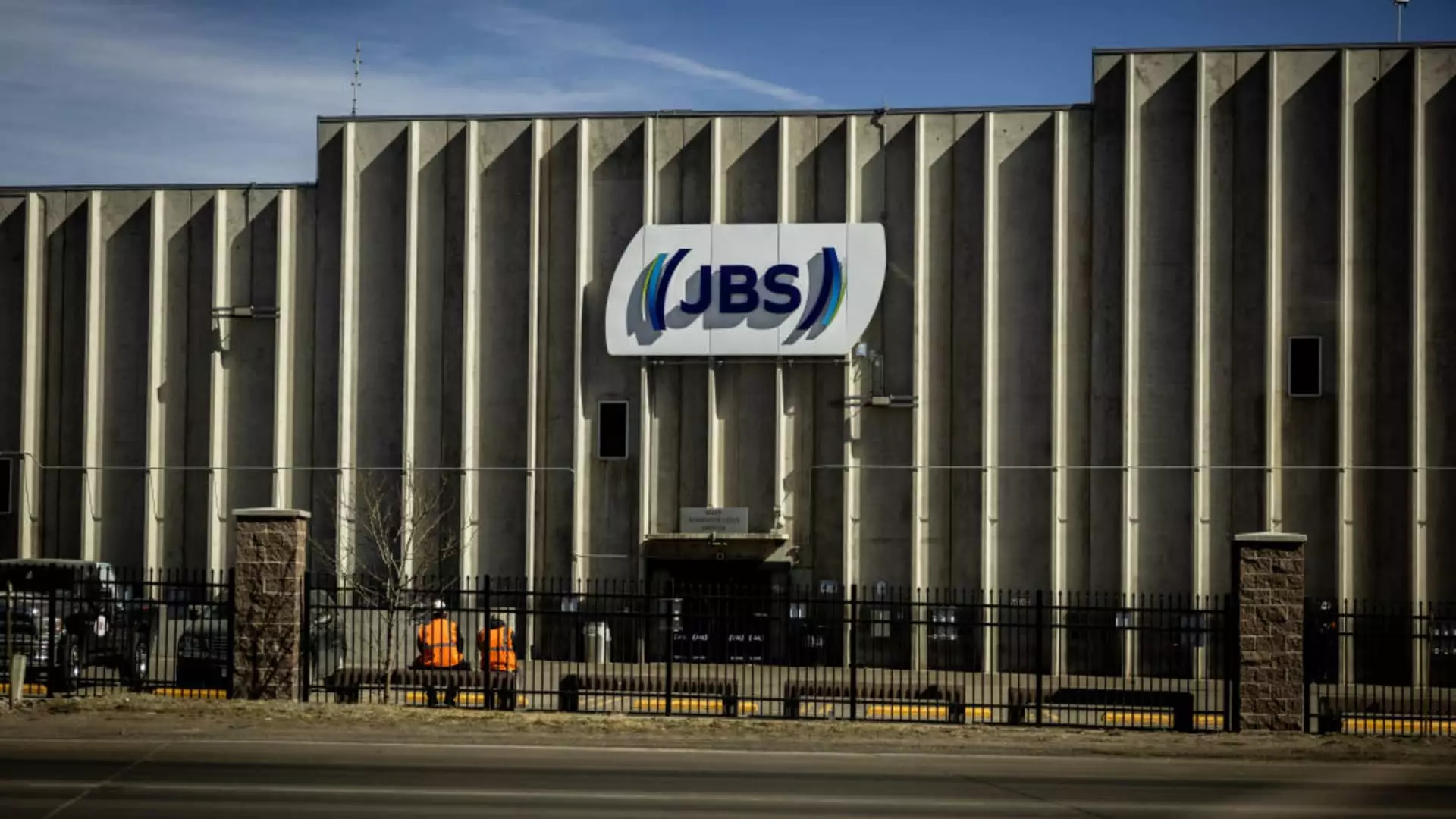On a day that marked a landmark moment for Brazilian meat giant JBS, the company debuted on the New York Stock Exchange at an opening price of $13.65 per share, positioning itself with a staggering market valuation of approximately $30 billion. This figure not only eclipsed that of its nearest competitor, Tyson Foods, valued at around $19.82 billion, but also demonstrated JBS’s ambitious reclamation of the global meat market, post scandals and corruption controversies. Yet, while the financial success of its public offerings captures headlines, the shadow of its morally questionable past looms large. It’s critical to evaluate whether such triumph should come with a side serving of ethical scrutiny.
A Complex History Marred by Scandal
JBS’s path to the U.S. market has indeed been arduous. With aspirations first announced back in 2009, the journey was not just delayed but tainted by a series of disturbing allegations surrounding corrupt practices. The company found itself in the crosshairs of Brazilian investigators as bribery and corruption cases unfolded, ultimately leading to a staggering $3.2 billion penalty for its parent company, J&F Investimentos, back in 2017. These revelations not only shocked the Brazilian populace but also sent ripples through the international market, causing skepticism about the meat industry’s regulatory frameworks. How can we as consumers support a conglomerate whose backbone is constructed on questionable ethics?
Despite the controversies, JBS has displayed remarkable resilience, even returning the notorious Batistas to the board after their acquittal of insider trading charges. Their recent fine for purchasing cattle from illegal land in the Amazon further showcases the lack of accountability that seems to permeate this organization. Are we really comfortable allowing such a corporation to operate unchecked while prioritizing profit over environmental stewardship and social responsibility?
Political Connections and their Consequences
The political entanglements surrounding JBS provide another layer of complexity to its burgeoning success. Following the 2016 election campaign, the subsidiary Pilgrim’s Pride emerged as the largest single donor to President Donald Trump’s inauguration committee, contributing a whopping $5 million. Such acts are often cloaked in the veneer of civic participation, but they unveil a more disconcerting truth: the intersection of meatpacking giants and government exploits artillery in a battle against regulatory scrutiny.
It’s troubling when companies that exhibit such a vast history of misconduct can wield such influence over political discourse. This relationship raises questions about the integrity of our institutions and whether they can adequately safeguard public interest against corporate malfeasance. The concept of democracy becomes frail when large corporations manipulate it for self-serving ends.
Future Trajectory: Opportunities and Ethical Obligations
With its public offering finally achieving fruition, JBS is now in a position to leverage its resources to address some of the criticisms it has faced for years. The market is rife with opportunities for sustainable practices in agriculture and meat production. If JBS genuinely seeks to rehabilitate its image and counter skepticism about its operations, it must prioritize ethical sourcing and transparent practices.
Investors have a moral obligation to consider not just the profits, but also the implications of their investments. Companies should not just be evaluated on their financial performance but also their societal impact. As JBS rides this wave of newfound opportunity, the question remains—will it respond positively to consumer demands for ethical governance, or will it continue to evade accountability in pursuit of profit?
In the unfolding narrative of JBS, there lies a crucial lesson for all industry titans: the pursuit of financial growth must not replace a commitment to ethics and sustainability. The true measure of success shouldn’t be the price of shares traded on the stock market; instead, it should reflect the broader implications of corporate actions on society and the environment. Rather than celebrating JBS’s existence in the U.S. market, we ought to scrutinize whether capitalism can align with moral responsibility.

